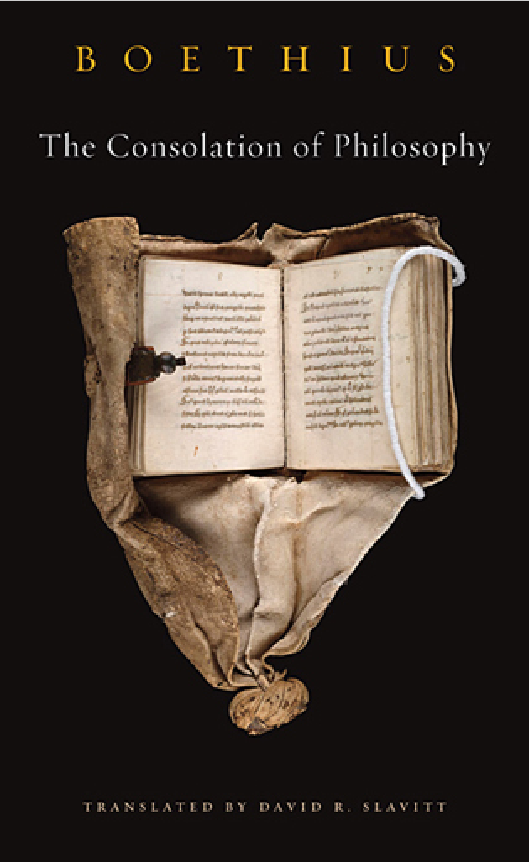Newly released
This book is new and will be uploaded as soon as it becomes available to us and if we secure the necessary publishing rights.

The Consolation of Philosophy Book PDF
(0)
Author:
BoethiusNumber Of Reads:
78
Language:
English
Category:
literatureSection:
Pages:
198
Quality:
excellent
Views:
1068
Quate
Review
Save
Share
Book Description
Boethius was an eminent public figure under the Gothic emperor Theodoric, and an exceptional Greek scholar. When he became involved in a conspiracy and was imprisoned in Pavia, it was to the Greek philosophers that he turned. THE CONSOLATION was written in the period leading up to his brutal execution. It is a dialogue of alternating prose and verse between the ailing prisoner and his 'nurse' Philosophy. Her instruction on the nature of fortune and happiness, good and evil, fate and free will, restore his health and bring him to enlightenment. THE CONSOLATION was extremely popular throughout medieval Europe and his ideas were influential on the thought of Chaucer and Dante.
Boethius
Anicius Manlius Boethius was a Roman senator, consul, magister officiorum, historian, and philosopher of the Early Middle Ages. He was a central figure in the translation of the Greek classics into Latin, a precursor to the Scholastic movement, and, along with Cassiodorus, one of the two leading Christian scholars of the 6th century. In 1883, Pope Leo XIII sanctified him as a saint within the Diocese of Pavia, where he is buried.
Boethius was born in Rome a year after the collapse of the Western Roman Empire. A member of the Anici family, he was orphaned following the family's sudden decline and was raised by Quintus Aurelius Memmius Symmachus, a later consul. After mastering both Latin and Greek in his youth, Boethius rose to prominence as a statesman during the Ostrogothic Kingdom: becoming a senator by age 25, a consul by age 33, and later chosen as a personal advisor to Theodoric the Great.
In seeking to reconcile the teachings of Plato and Aristotle with Christian theology, Boethius sought to translate the entirety of the Greek classics for Western scholars. He published numerous transcriptions and commentaries of the works of Nicomachus, Porphyry, and Cicero, among others, and wrote extensively on matters concerning music, mathematics, and theology. Though his translations were unfinished following an untimely death, it is largely due to them that the works of Aristotle survived into the Renaissance.
Despite his successes as a senior official, Boethius became deeply unpopular among other members of the Ostrogothic court for denouncing the extensive corruption prevalent among other members of government. After publicly defending fellow-consul Caecina Albinus from charges of conspiracy, he was imprisoned by Theodoric around the year 523. While jailed and suffering from depression, Boethius wrote De consolatione philosophiae a philosophical treatise on fortune, death, and other issues—which became one of the most influential and widely-produced works of the Early Middle Ages. He was tortured and executed in 524, becoming a martyr in the Christian faith.
Book Currently Unavailable
This book is currently unavailable for publication. We obtained it under a Creative Commons license, but the author or publisher has not granted permission to publish it.
Rate Now
5 Stars
4 Stars
3 Stars
2 Stars
1 Stars
The Consolation of Philosophy Quotes
Top Rated
Latest
Quate
Be the first to leave a quote and earn 10 points
instead of 3
Comments
Be the first to leave a comment and earn 5 points
instead of 3